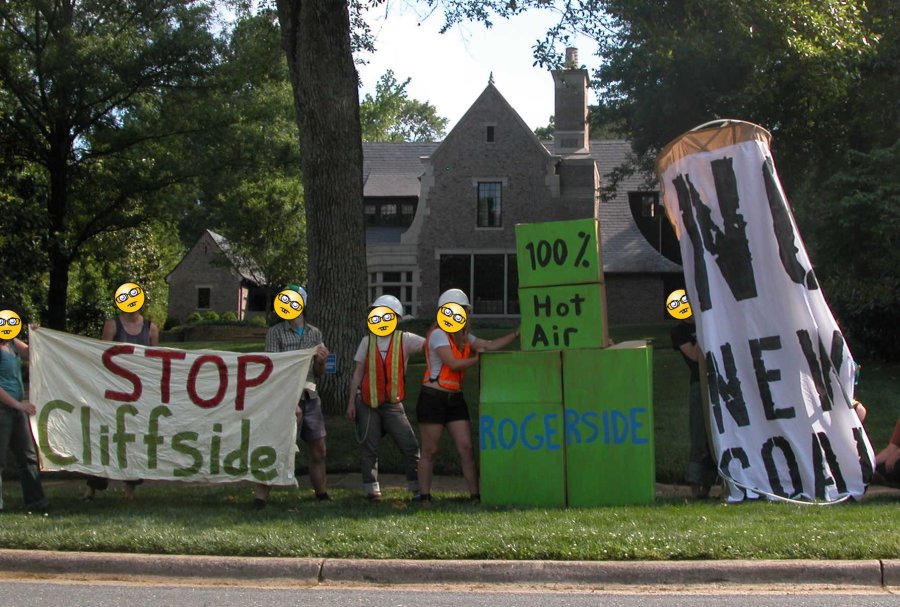 May 25, 2008 – Charlotte, NC
May 25, 2008 – Charlotte, NC
Today, activists with Asheville Rising Tide broke ground on a new 800 Mw clean energy power plant in Duke Energy CEO Jim Rogers front yard. The power plant will tap into a previously unexplored energy source known as hot air which has been found in large concentrations at Roger’s residence, 330 Eastover Rd, Charlotte, NC. “The hot air emitting from Jim Rogers mouth has been around for quite some time, but the last couple of years has seen an exponential growth of this untapped energy source as Rogers parades around the country calling for greenhouse gas reductions while building the dirty Cliffside coal plant. This was simply an opportunity we couldn’t pass up,” said Jill Rockingham, chief engineer for the project.
Asheville Rising Tide believes that the construction of the power plant is a win-win situation for the economy and the environment. “We are taking a very dangerous and volatile gas and turning it into a source for clean, carbon free electricity. The great thing about tapping into Roger’s hot air is that it is a truly renewable resource. At this point there appears to be an endless supply,” said, Rockingham. “Why build another dirty, expensive coal plant, when there are millions of BTU’s of clean, cheap, energy seeping out of their CEO’s mouth every day,” said Jake Tillerman, Asheville Rising Tide’s investment relations manager.
The plant has come under fire from some environmental groups over concern of a little studied element known as BS, a byproduct of burning hot air. The hot air at the Roger’s residence has an unusually high concentration of BS and environmentalist are concerned over potential health effects to nearby residents. “We are currently looking into ways in which to capture and sequester the BS but the technology just isn’t available at this moment,” said Rockingham. “We assure the environmental community that this is the last plant we build that does not have the capability of sequestering Roger’s BS. Besides, we painted the plant green. That seems to be all that corporations like Duke have to do to call a project sustainable.”
